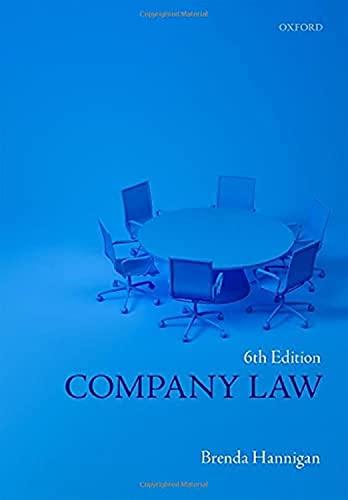Question
Thomas Garrison transferred title on two cars to one of his sons, Jay Garrison, while on his deathbed. After Thomas passed, his widow Pamela Garrison
Thomas Garrison transferred title on two cars to one of his sons, Jay Garrison, while on his deathbed. After Thomas passed, his widow Pamela Garrison filed a petition to recover the car as the representative of the estate. Pamela challenged Thomas' competency to make inter vivos gifts of the cars. The trial court ruled that the cars were actually gifts causa mortis and concluded that the evidence of Thomas's competency to make such a gift was evenly split. Because the evidence was equal, the trial court ruled the cars had to be returned to the estate. Jay appealed the decision, contending that the trial court should have concluded the cars were a gift inter vivos and not a gift causa mortis. The type of gift matters because different standards apply for each one. According to the appellate court, the burden of showing whether a gift qualifies as an inter vivos gift is a preponderance of the evidence. On the other hand, the evidence must be clear and convincing to establish a gift as a gift causa mortis.
Why do you think the standard for the gift causa mortis is more stringent than for the inter vivos gift? [Garrison v. Garrison, 71 NE 3d 423 (2017).]
Step by Step Solution
There are 3 Steps involved in it
Step: 1

Get Instant Access to Expert-Tailored Solutions
See step-by-step solutions with expert insights and AI powered tools for academic success
Step: 2

Step: 3

Ace Your Homework with AI
Get the answers you need in no time with our AI-driven, step-by-step assistance
Get Started


